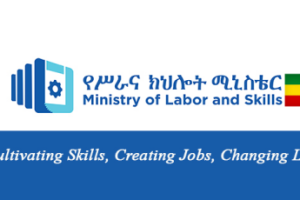
The agricultural sector is known to be the backbone of the Ethiopian economy. Government is working on the growth of production and productivity of this decisive economic sector by providing agricultural inputs, training professionals and farmers, supporting researches conducted in the sector, etc.
Partakers of the agriculture sector acknowledge this support, indicating that there is no financial support for smallholder farmers to increase their production and productivity. In fact, they call the country the only country that does not have financial support for smallholder farmers. They indicate that banks are not financing small-scale enterprises but are engaged in agricultural investment.
Some of the banking experts approached by Addis Zemen Daily said that challenges would be noticed in providing financial service for farmers. Ethiopian agriculture is dependent on rainfall, and if there is no rain, the crop will disappear. Agriculture is more vulnerable than any other. Crop pests and pests like the locust swarm destroy crops.
The Experts point out that the money banks are lending is treasure of the public, and they have to make sure that the loan is repaid. They also pointed out that backward farming and harvesting in line with traditional practices are the challenges of the sector.
According to Dessalegn Tolera, Awash International Bank Share Company Credit Analyst and Portfolio Management Vice President, farmers are required to meet bank requirements in order to get loan. The farmers are trapped in broken land, unable to provide Property for bail and have no certificate of land ownership.
Dessalegn said that let alone acquiring loan, the experience of depositing some amount of money in the bank for saving purpose has not improved yet. He pointed out that there are different types of loans available to different economies, and that they hold more than 50 billion Birr. According to him, the agricultural loan could be 100 million Birr, which is very small.
Dessalegn also pointed out that there is also a possibility of providing credit for some commercial areas. Humera, an area called welega Gujji, Jimma coffee and plant producers have a map for their place and loan is provided for them by registering their property. He mentioned that the loan for oilseeds and market oriented crops such as corn, soybeans, and sesame producers would be granted. He also explained that loan provision is underway for those who are engaged jointly in agro-processing in the surrounding of Meki to produce fruit and vegetables.
According to Dessalegn, the government is working to support farmers to use modern agricultural equipment. Farmers in the area of Arsi, Bale, have asked to buy equipment such as a combiner. “We offer loans to the buyers of combiner and other agricultural equipment though few of them do this.”
Noting the proclamation which has been approved by the Council of Ministers that enables bail of mobile property, such as bulls, camels, etc. he said: “We are ready to accept and work to update our policy related to Mobile Property Insurance Registration accordingly.”
If the farmer is to take loan bailing his land, there must be certificate for the land ownership. Developing the farmers’ awareness must be done in order to make them do this. Banks also need to have enough information about their products. This gives banks the ability to provide loans, Desalegn said.
“The farm is vulnerable to problems and there is no insurance, so many banks will not be forced to engage into it,” says Alemu Semiye, Director of the Credit Analysis Department of Nib International Bank Share Company. He also indicated that the farmers do not have guarantees for bail.
Nevertheless, he noted that there are some cases where Nib International Bank may offer loans to farmers. “We have provided loans to customers who carryout crop production in Wellega, and those who use mechanized and traditional farming in Gondar Metema area in order to facilitate the way they grow their production. Some have refinanced the loans they have taken out capacitating themselves. Others also have been upgrading themselves by taking out loans again and again,” he explained.
Alemu further explained that Nib International Bank has provided loan to crop producers and livestock feeders in Gondar area to enable them provide quality livestock and meat to marketers. Through this, some are transformed. It is supporting farmers engaged in agro-processing. Poultry farmers in Bishoftu town have taken out loans repeatedly; and farmers in the town, who produce vegetables and fruits, and dairy cows, have also benefited from the Bank’s loan. Similarly, oilseeds and cotton growers have also benefited from the support.
Alemu pointed out that the Bank is supporting 50 farmers by making a deal with the International Financial Corporation (IFC). As a result, there is a good opportunity for the farmers to grow their produce and become exporters. He further explained that other banks are also increasingly interested in supporting farmers and cooperatives watching the growth of their exports.
“We have lent to farmers in Limu, Jimma, Bonga, Dilla, Yirgachefie and Aletawendo, when no lenders have given them loan.” According to Alemu, the loan service has been started over 10 years. He also pointed out that the bank has many customers who have owned coffee washing machine and providing their products to markets starting their business from coffee production.
According to the banks’ experts, the farmer should be set up by property ownership certificate, modernized farming and saving account in order to make them beneficiary from mortgage loan. Government and banks should work jointly and intensely in making the government’s proclamation applicable so that the farmers can seize their portable assets such as bulls, camels, and the like to get loan.
The Ethiopian Herald April 21/2020
BY BACHA ZEWDIE




